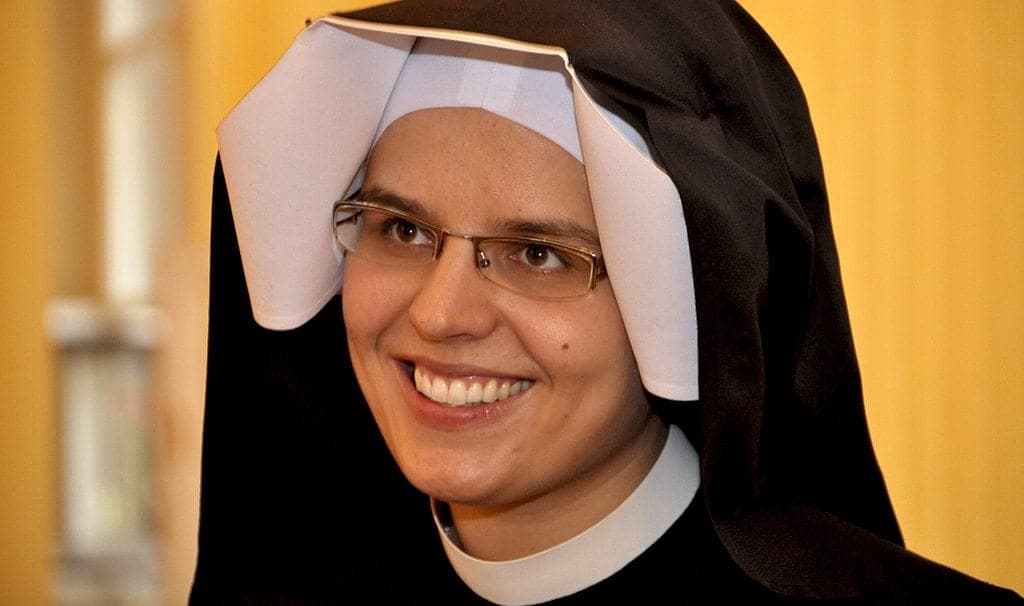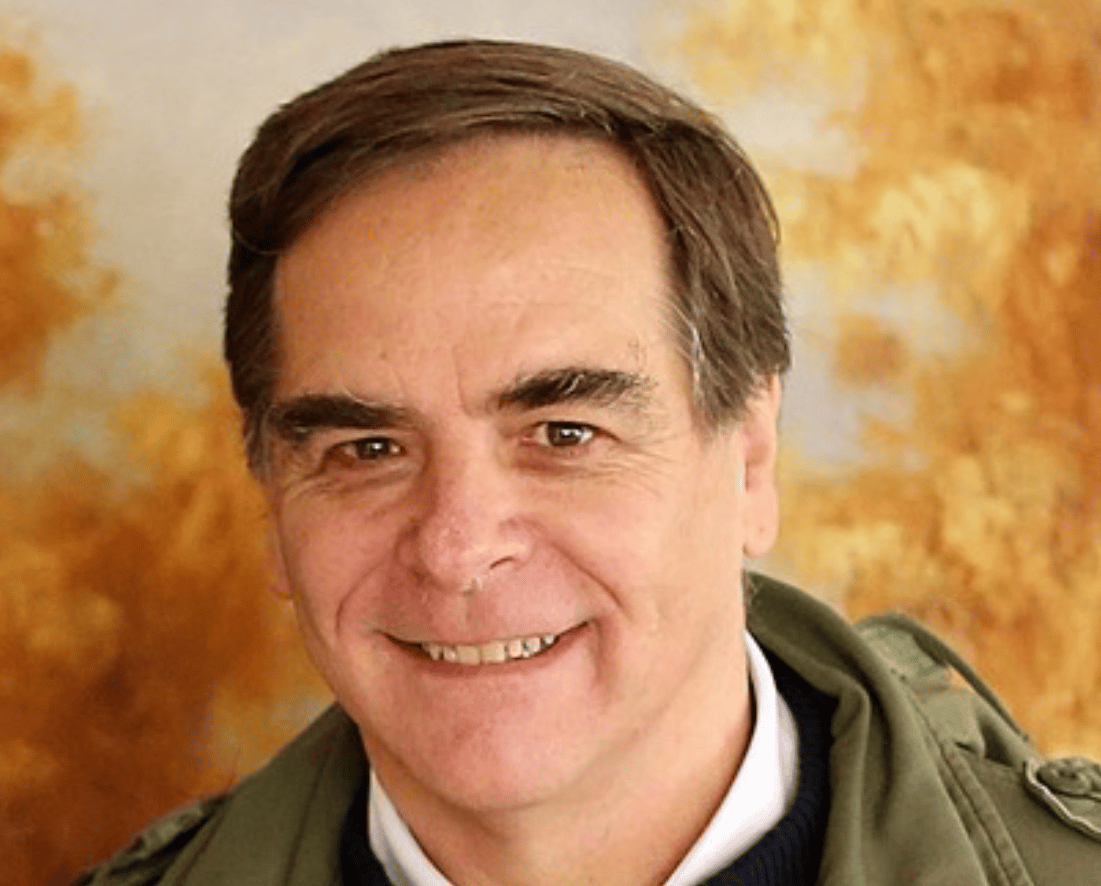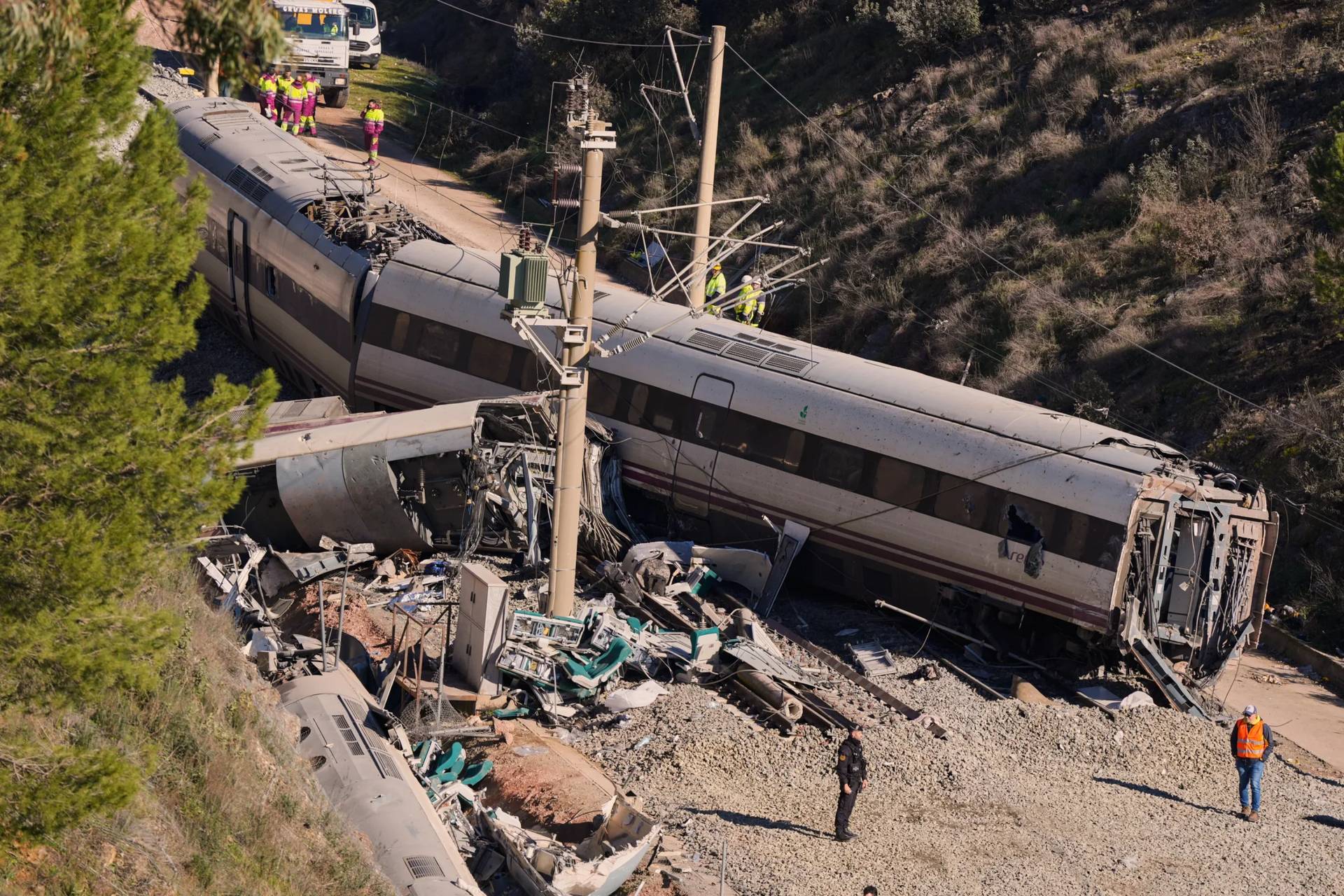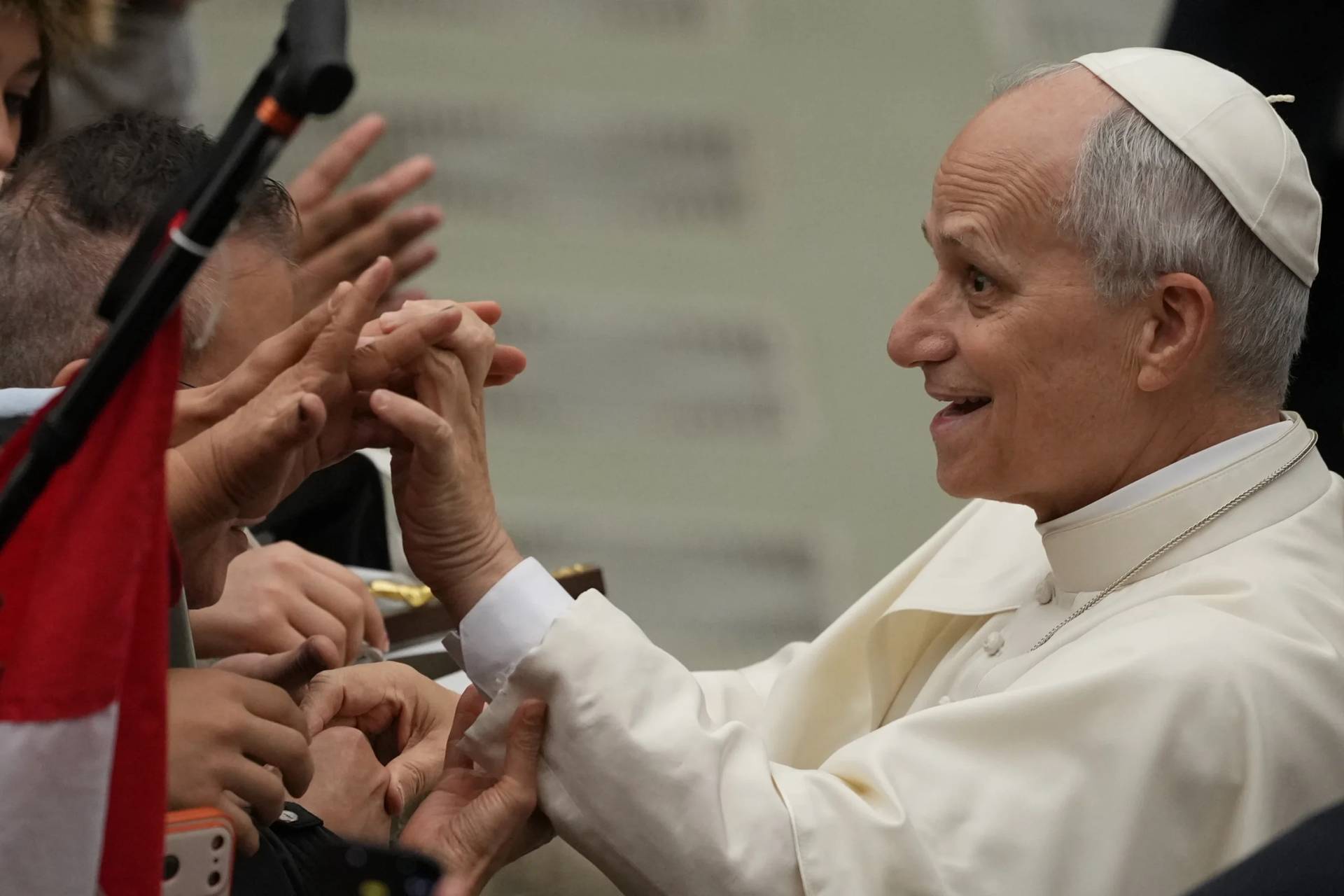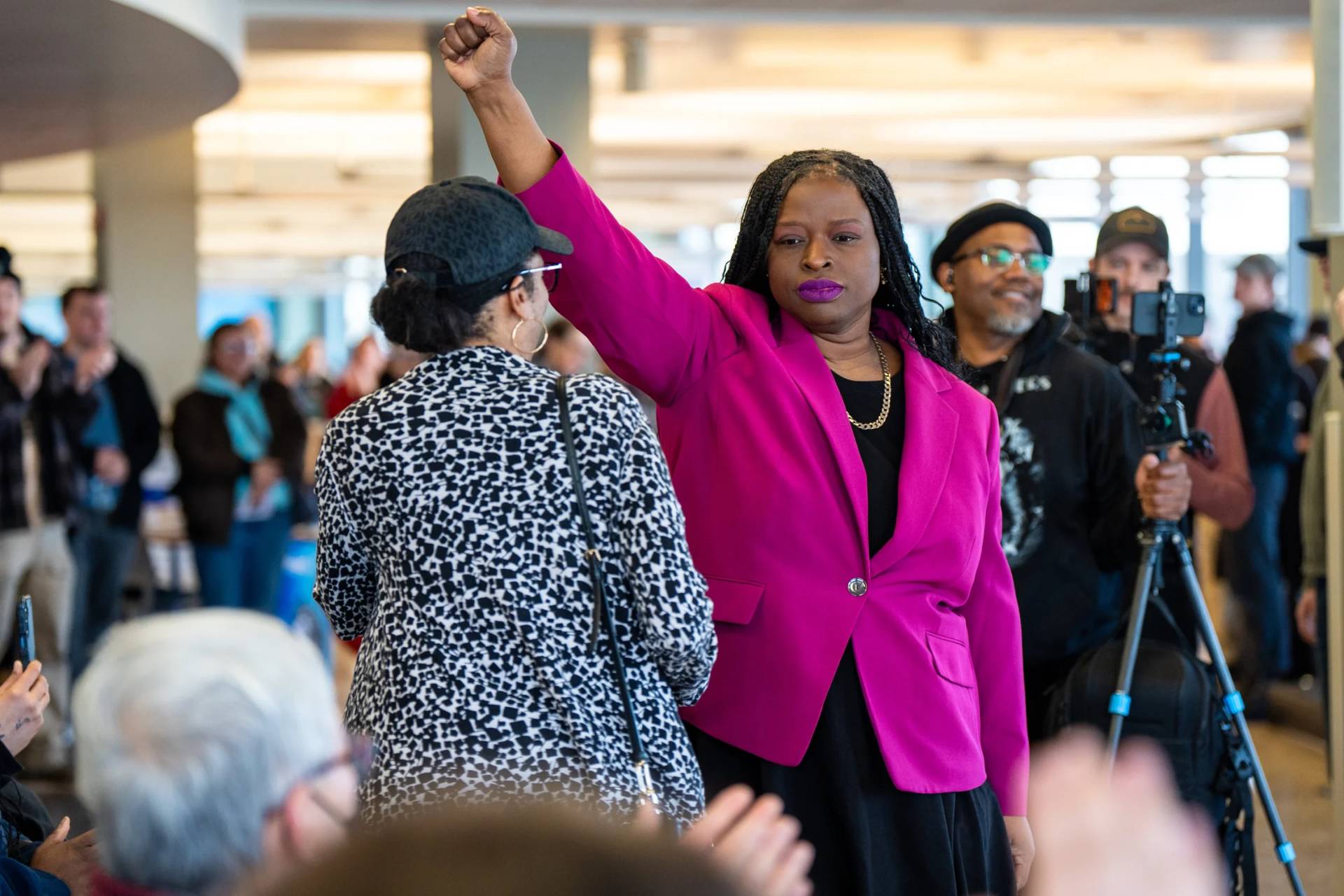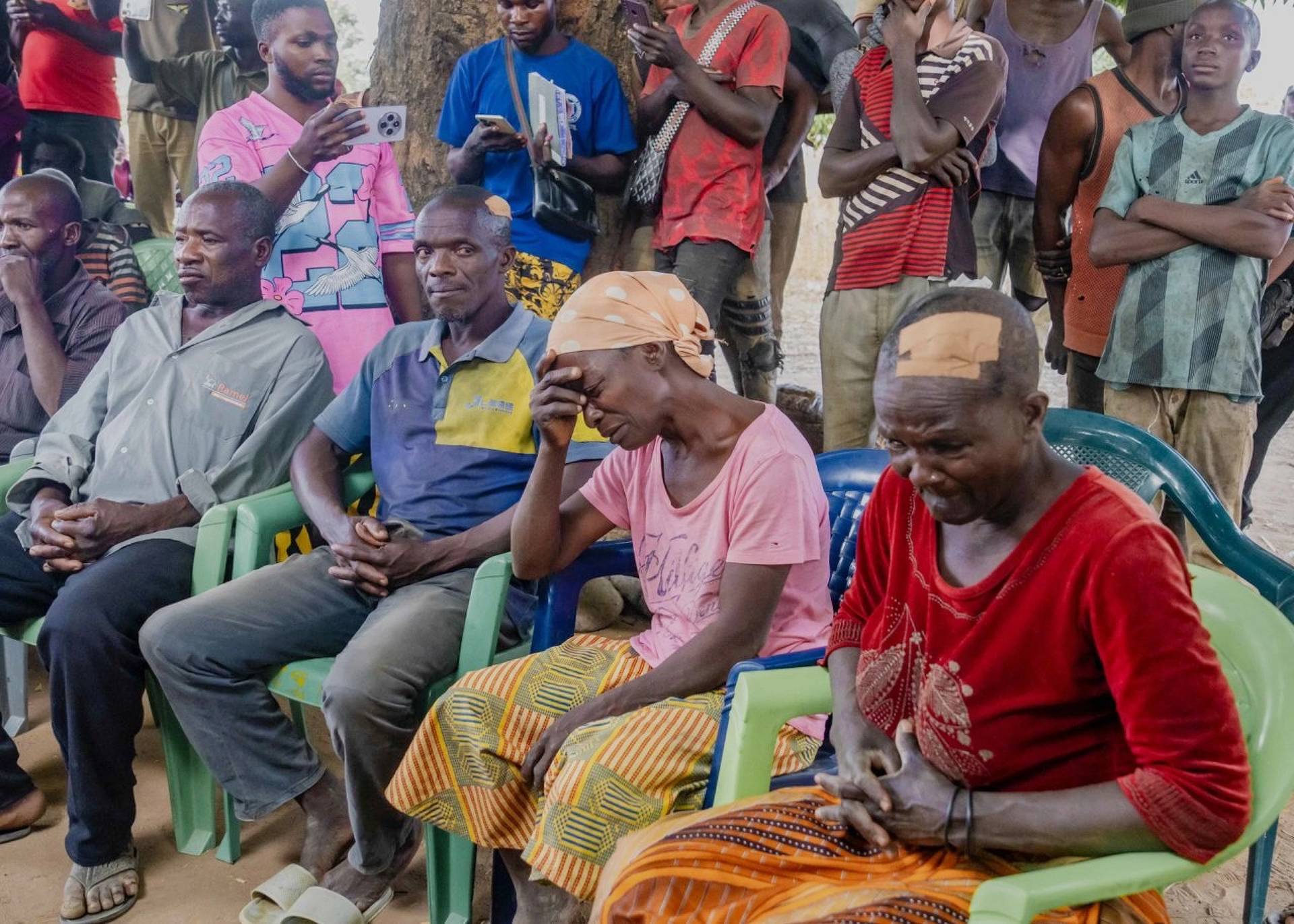KRAKOW, POLAND — “Faustina had so many difficult situations in her life that they could weigh her down. But she used them like a trampoline. She used these difficult situations to go higher.”
Sister Gaudia Skass is talking with me about one of Poland’s most well-known saints –St Faustina Kowalska, the mystic known as “the secretary of Divine Mercy. She’s second in international notoriety and devotion only to our contemporary, St John Paul II; he canonized her in 2000 as a “door of mercy,” as George Weigel has described her, after a brutal century, including, if not especially, in their shared Krakow.
Gaudia is a Sister of Our Lady of Mercy and could be a dead-ringer for St. Faustina, radiating light from her face, as if the rays of the Divine Mercy image Sr. Faustina relayed to the world from her prayer. Sr. Gaudia reminds me of Pope Francis as I interview her. You may recall that very first major interview (many interviews ago now, of course), when he was asked who he was, and responded: “a sinner.”
“I’m like this little child,” Sr. Gaudia tells me, “trying somehow to find my way in His will, but I keep on spoiling things. I keep on spoiling His good work.”
A Pole who studied painting at the Academy of Fine Arts in Warsaw, Sr. Gaudia doesn’t present herself as anything other than a child of God, living life trying to grow in the joy of the Gospel, as Pope Francis has made a main theme of his pontificate.
“He entrusts me with many things, and many times I do not do what He wants me to do,” she shares, about the reality of her own relationship with Jesus. “And not because I really want to hurt someone or really cause Him pain. I’m clumsy. I’m helpless. And sometimes I just simply do things which I soon regret.”
She describes an image of a young child who acts up in Church. His parents aren’t upset with him for long. God and His mercy are like this with us.
She explains how these falls of hers help her to rediscover “the tenderness of God.” He’s “demanding,” but never without giving us the grace to do His will for us. “He wants your development, because He wants you to grow…. He really wants you to understand life and live life in fullness, and to give yourself to the others, like He created you to do. He gave you all the possibilities to become Christ-like, and so do it!”
In his official message for World Youth Day beginning today in Krakow – which will include a visit from Pope Francis, the pontiff wrote: “You, dear young man, dear young woman, have you ever felt the gaze of everlasting love upon you, a gaze that looks beyond your sins, limitations and failings, and continues to have faith in you and to look upon your life with hope? Do you realize how precious you are to God, who has given you everything out of love? Saint Paul tells us that “God proves his love for us in that, while we were still sinners, Christ died for us” (Rom 5:8). Do we really understand the power of these words?”
Sr. Gaudia mentions a woman in journalism who described the many times she has found herself “on the ledge.” The journalist shared how many people she knows who have gone through with suicide. There are people among us who so desperately need to feel the gaze of everlasting love.
We live in a world, she observes, “full of broken people.” Many times deep pain is “disguised by a smile.” But, “so many times, behind the smile is despair.” In the face of this reality, “the message of mercy gives us a lot of hope, showing us ways out.” It is “never too late. You can never be so deep in the darkness of your sins or stupid choices.”
She hits on something that often makes headlines when confession and mercy are discussed. Women do not think that they can be forgiven if they have the sin of abortion in their past. But while you cannot bring your child back to life, she says, “God can help you to live with the consequences.”
Do not exclude yourself from this. Sr. Gaudia pleads: “You can actually help so many other women who cannot deal with the problem. Just let God help you, and then you will be his disciple. He will send you to help save the others…. See that every sin we commit can actually help us to help the others, as long as we let God heal us.”
When John Paul II canonized St. Faustina in 2000, he said:
“Jesus told St. Faustina: ‘Humanity will not find peace until it turns trustfully to divine mercy’ (Diary, p. 132). Through the work of the Polish religious, this message has become linked forever to the 20th century, the last of the second millennium and the bridge to the third. It is not a new message but can be considered a gift of special enlightenment that helps us to relive the Gospel of Easter more intensely, to offer it as a ray of light to the men and women of our time.”
It’s on this bridge that World Youth Day happens this week in Krakow, an international experience begun by John Paul II, this year in a city inseparable from the memory of John Paul II, its former cardinal archbishop. It brings Pope Francis to Krakow to lift up the message of Divine Mercy in a world where violence and despair is overwhelming. May its healing consolation and strengthening be overwhelming.
“Fear is not a good adviser,” Sr. Gaudia says when I ask her about the possibility of terrorism at World Youth Day here. At a time where fear and uncertainty seem ever present, Sr. Gaudia advises remembering that God is God.” He is “the merciful one who will save the world. He’s the merciful one who will make all things good. But in His time, in His way.”
From the very convent where Jesus revealed the Divine Mercy message, she tells me: “you can believe in Him and trust Him, or not. But if you choose to trust Him…Trust Him.”
